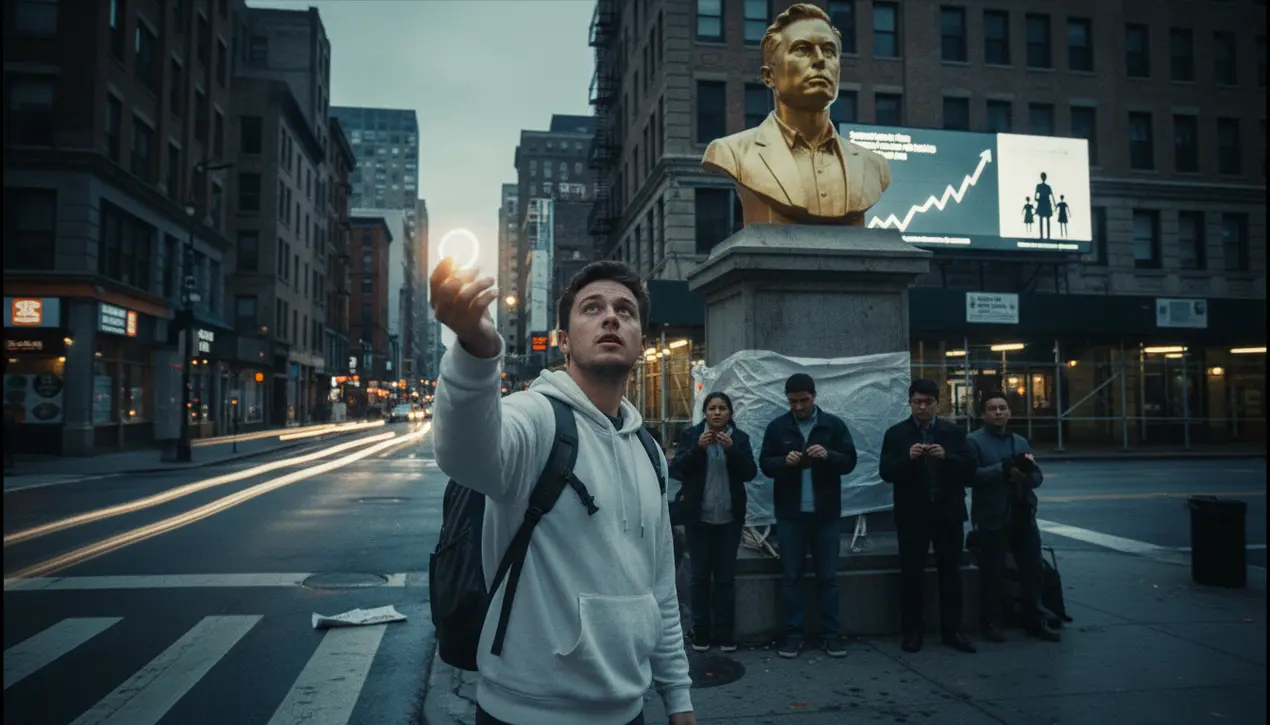
Politicsprotests & movementsMass Demonstrations
Should we really blame billionaires for our own financial struggles?
AN
Anna Wright
3 hours ago7 min read4 comments
The American fixation with wealth has entered a new, more critical phase as the chasm between the ultra-rich and everyone else widens into a defining social issue. Consider the stark juxtaposition of Elon Musk's trajectory toward becoming the world's first trillionaire against a judicial order compelling the Trump administration to fully fund food stamps for 42 million citizens—a ruling the administration promptly appealed.This contrast isn't merely anecdotal; it's symptomatic of an economic system that a new Harris Poll, shared exclusively with Fast Company, reveals is perceived by a majority of Americans as fundamentally rigged. Only 28% of respondents believe the current U.S. economic structure works well for most people, while 35% assert it prioritizes the ultra-wealthy, and 36% see it offering opportunity, but not equally.The political response is crystallizing in figures like New York City Mayor-elect Zohran Mamdani, a Democratic Socialist whose campaign highlighted the affordability crisis and garnered support from critics of concentrated wealth like Robert Reich and Bernie Sanders. Their argument, echoed unexpectedly from pop culture stages by Billie Eilish—who, while announcing a donation representing nearly a quarter of her net worth, pointedly asked why billionaires exist at all—is that immense private wealth creates a profoundly unfair society.The data bears this out: 67% of Americans now blame billionaires for creating this unfairness, a sentiment that spikes to 72% among Gen Z and millennials, who also feel these concentrations of capital directly hinder their ability to achieve the American dream. This isn't just about envy; it's about a re-evaluation of responsibility.The poll finds 72% of Americans believe billionaires have an ethical responsibility to address humanitarian crises, and 69% say they have a duty to better society. The policy prescriptions flowing from this sentiment are clear—taxing extreme wealth to fund universal childcare, as Mamdani proposes, or to tackle global hunger and climate change, as other advocates suggest.Yet, there's a profound cynicism at play; 76% of respondents believe billionaires are more concerned with self-preservation than altruism. This distrust extends into the political arena, where figures like Bill Ackman spending millions to influence local elections or Elon Musk's deepening enmeshment with the federal government have led 7 in 10 Americans to wish billionaires played a smaller political role.Libby Rodney, chief strategy officer at The Harris Poll, aptly declares 'the era of the untouchable billionaire is over. ' However, this critique coexists with a complex, almost tragic aspiration.Even as 76% acknowledge billionaires benefit from a broken system, six in ten Americans confess they still want to become one. The driver here is not greed but a desperate quest for security in a perpetually unstable economy.For Gen Z and millennials, wealth is being redefined from a status symbol to a survival strategy, a necessary bulwark against continuous economic shocks. This duality—the public condemnation of billionaires alongside a private yearning for the safety their wealth represents—paints a portrait of a nation grappling with its foundational myths of meritocracy and opportunity, forced to question whether the problem is the players or the very rules of the game itself.
#wealth inequality
#billionaires
#economic system
#American dream
#featured
#Gen Z
#millennials
#financial struggles
#Harris Poll
Stay Informed. Act Smarter.
Get weekly highlights, major headlines, and expert insights — then put your knowledge to work in our live prediction markets.
Comments
Loading comments...
© 2025 Outpoll Service LTD. All rights reserved.